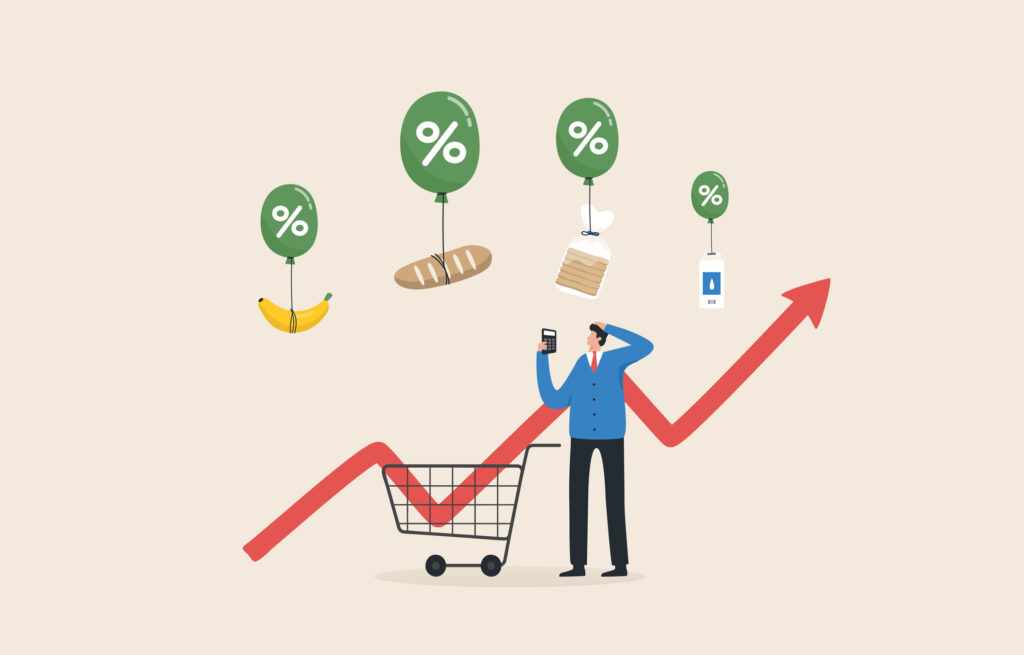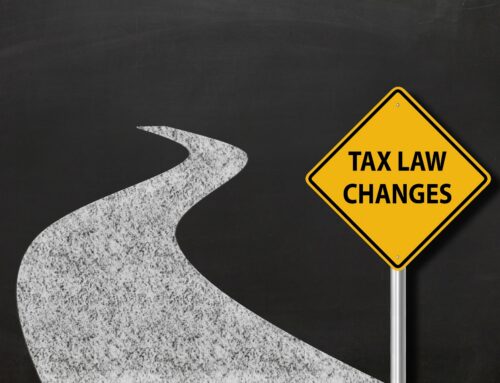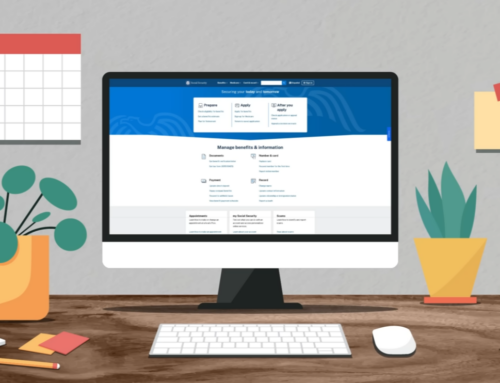
There’s been a lot of news about inflation lately. As of July, the inflation rate was around 3.2%.[1] This means that the cost of goods and services, including but not limited to items such as groceries, housing, and gas, has gone up by 3.2% since this time last year.[2] You might think 3.2% is a pretty small number, and maybe you haven’t noticed a huge jump in the costs of the things you purchase every day. So, how could such a small number be important to your savings and your retirement?
We’re going to give you an example to explain how even 3.2% can be a lot. Let’s consider inflation’s effect on how much you spend: Let’s say you spent $10,000 on groceries last year. If inflation is at 3.2% this year, that means you will spend approximately $10,320 this year on groceries.
Then, let’s say the inflation rate stays the same for 2024. In 2024, your groceries will be approximately $10,650. So, as you can see, even if things are only going up by 3.2% every year, this can begin to add up over time. Because the cost of goods is going up, as time passes, you will have to spend more on the things that you buy frequently.
Another way to think of this is that the money you saved (for example, the money you have in a savings account) has less power than it used to. If the cost of goods increases every year, that means the power of every dollar will decrease over time. This is why some people advise against leaving your money in a checking account that isn’t earning an inflation-beating return. Instead, they may suggest you save money in market-invested accounts such as IRAs, 401(k)s, or other investment accounts. Some see leaving money in a place without the possibility of growth as risky because, if left alone, inflation will erode the value of your savings. However, there may be situations where leaving your money in low-risk, liquid investments might be beneficial, given that there is a larger risk involved in seeking larger returns.
These are the types of questions you and a financial professional will address when discussing the best way to fight inflation and stay within your risk tolerance levels. The truth is that there are ways to try to plan around inflation and make informed decisions that may help your retirement savings meet your goals.
Planning and maintaining your hard-earned savings can be a complicated task. Considering the effects of inflation is a key part of making sure the lifestyle you saved for lasts throughout your retirement. Professional guidance is key to making sure you’re not making costly mistakes along your financial journey, so Click HERE to reach out to one of our professionals today at Zinnia Wealth Management for a complimentary review of your finances.






